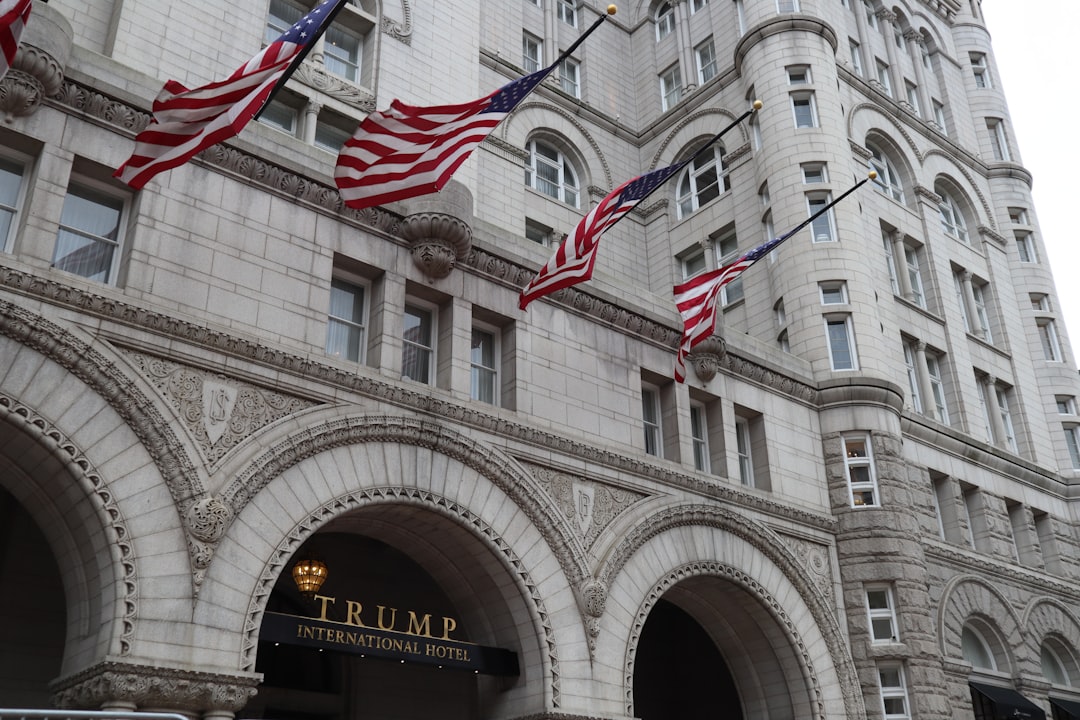Trump Administration Considers Expanding Tariffs on Auto Parts and Steel Imports
At a Glance
The Trump administration is currently evaluating whether to broaden the range of goods subjected to tariffs initially imposed under Section 232 and Section 301. These reviews are particularly focused on auto parts and steel imports, as well as various products from China. This potential adjustment comes amid ongoing trade tensions and domestic economic considerations.
Background & Timeline
The landscape of U.S. tariffs has evolved significantly over the past few years, particularly under the Trump administration. In 2018, tariffs on steel and aluminum imports were implemented under Section 232, citing national security concerns. Shortly thereafter, tariffs targeting a broad array of Chinese goods were enacted under Section 301 in response to alleged unfair trade practices, including intellectual property theft and forced technology transfer.
Since their introduction, these tariffs have been a subject of heated debate. Proponents argue that they protect American jobs and industries, while critics contend that they lead to increased costs for consumers and can provoke retaliatory measures from trading partners.
In early 2024, the Biden administration initiated a review of these tariffs, signaling a potential shift in trade policy. However, as the geopolitical landscape changes, the Trump administration’s recent deliberations suggest a possible recalibration of these tariffs, particularly in light of the economic pressures stemming from the COVID-19 pandemic and supply chain disruptions.
What’s New
According to recent reports, federal agencies are now scrutinizing the implications of expanding tariffs on auto parts and steel imports. This review specifically considers how these adjustments may impact domestic industries and the overall economy. The agencies involved include the Department of Commerce and the Office of the United States Trade Representative, both of which play pivotal roles in shaping trade policy.
The focus on auto parts comes at a time when the automotive industry is grappling with supply chain challenges and a shift toward electric vehicles. Some officials are expressing concern that expanding tariffs could exacerbate these issues, potentially leading to higher vehicle prices and reduced competitiveness in the global market.
Moreover, the review of steel tariffs is particularly relevant as the Biden administration has emphasized infrastructure development and green energy initiatives, both of which require significant amounts of steel. As such, any changes to the tariff structure could have far-reaching consequences for these sectors.
Why It Matters
The potential expansion of tariffs on auto parts and steel imports raises several critical questions for the U.S. economy and international trade relations. Here are a few key points to consider:
1. Impact on Prices: Increased tariffs could lead to higher prices for consumers, particularly in the automotive sector, where parts are often sourced globally. This could decrease demand for new vehicles, impacting manufacturers and dealers alike.
2. Domestic Production: On the flip side, proponents argue that expanding tariffs could encourage domestic production by protecting American manufacturers from foreign competition. This could lead to job creation in the short term, but the long-term sustainability of such jobs remains uncertain.
3. Retaliation from Trade Partners: Expanding tariffs may provoke retaliation from countries affected by the changes. This could lead to a tit-for-tat escalation in trade tensions, impacting various sectors of the economy.
4. Geopolitical Considerations: The global political landscape is changing, with increased competition from countries like China. Adjusting tariffs could be seen as a strategic move to bolster U.S. competitiveness, but it may also strain diplomatic relations.
5. Supply Chain Stability: The ongoing effects of the COVID-19 pandemic have highlighted vulnerabilities in global supply chains. Changes to tariffs could disrupt these chains further, leading to delays and increased costs for businesses reliant on imports.
What to Watch Next
As the review process unfolds, several key developments are worth monitoring:
- Official Announcements: Watch for updates from the Department of Commerce and the U.S. Trade Representative regarding findings from the review and any proposed changes to tariff structures.
- Industry Response: Pay attention to how key industries, particularly automotive and steel, respond to potential changes. Their lobbying efforts and public statements will provide insight into the broader economic implications.
- International Reactions: Keep an eye on how countries affected by these tariffs react. Diplomatic responses and potential retaliatory measures could shape future trade negotiations.
- Economic Indicators: Monitor economic indicators, such as inflation rates and consumer spending, as these will provide context for the impact of any tariff adjustments.
FAQ
Q: What are Section 232 and Section 301 tariffs?
A: Section 232 tariffs are levies imposed on imports that threaten national security, while Section 301 tariffs target imports from specific countries, particularly in response to unfair trade practices.
Q: How might expanding tariffs affect consumers?
A: Expanding tariffs could lead to increased prices for consumer goods, particularly in the automotive sector, as manufacturers may pass on higher costs to consumers.
Q: What are the potential benefits of expanding tariffs?
A: Proponents argue that expanding tariffs could protect domestic industries and jobs by reducing foreign competition, potentially boosting local manufacturing.
Q: What risks are associated with expanding tariffs?
A: Expanded tariffs could provoke retaliatory measures from other countries, disrupting trade relationships and leading to a broader escalation in trade tensions.
Q: Why are auto parts and steel the focus of this review?
A: The auto industry is facing supply chain challenges, and steel is crucial for infrastructure development. Adjustments in tariffs could significantly impact these sectors.
Takeaways
The Trump administration’s consideration of expanding tariffs on auto parts and steel imports underscores the ongoing complexities of U.S. trade policy. As federal agencies review the implications of these potential changes, stakeholders from various sectors will closely watch the developments. The outcomes of this review could have lasting effects on the U.S. economy, international trade relations, and the domestic manufacturing landscape.
Sources & Credits: Reporting synthesized from multiple reputable outlets and official releases.
Source: Original Source. Reporting synthesized from multiple reputable outlets and official releases.













